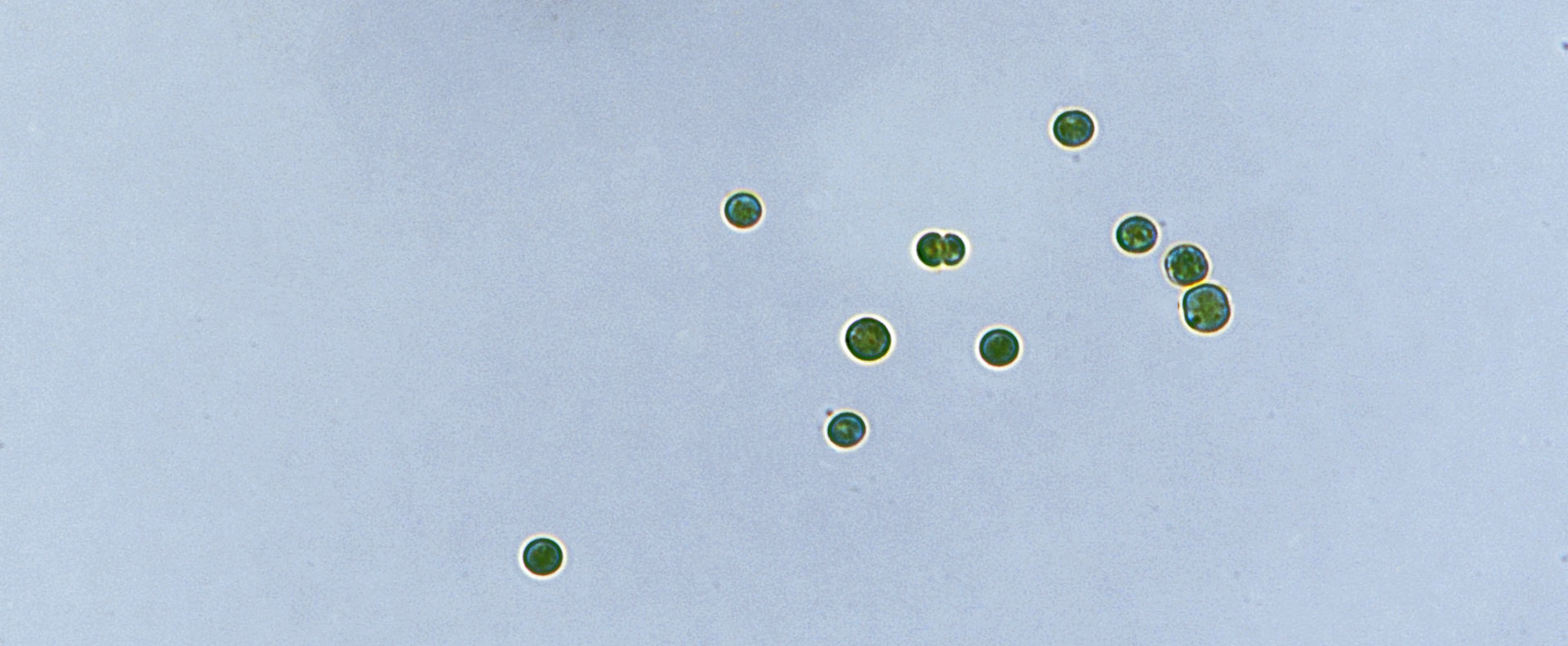Highlights
First Lysine Monomethylome Reported in Photosynthetic Organism

Synechocystis sp. PCC 6803 (Credit: IHB)
In a study published in Genomics, Proteomics & Bioinformatics, researchers led by Prof. GE Feng from Institute of Hydrobiology (IHB) of Chinese Academy of Sciences reported the first systematic study of lysine monomethylome of Synechocystis sp. PCC 6803 (Synechocystis).
Protein lysine methylation is a widespread post-translational modification (PTM) that are vital in all spheres of life, yet its extent and function in photosynthetic organisms remain largely unknown.
IHB researchers used integrated propionylation of monomethylated proteins, enrichment of the modified peptides, and mass spectrometry (MS) analysis to identify monomethylated proteins in Synechocystis, a unicellular cyanobacterium which carry out oxygenic photosynthesis and are applied extensively in studies of photosynthetic mechanisms and environmental adaptation.
They identified 376 monomethylation sites in 270 proteins via proteomic analysis of Synechocystis, and found that numerous monomethylated proteins were participated in photosynthesis and carbon metabolism.
The researchers further demonstrated that CpcM, a previously identified asparagine methyltransferase in Synechocystis, could catalyze lysine monomethylation of the potential aspartate aminotransferase Sll0480 both in vivo and in vitro and regulate the enzyme activity of Sll0480. The loss of CpcM led to decreases in the maximum quantum yield in primary photosystem II (PSII) and the efficiency of energy transfer during the photosynthetic reaction in Synechocystis.
This study suggested that lysine methylation is potentially one of the functional PTMs that regulates carbon metabolism and photosynthesis in photosynthetic organisms. It is the first reported lysine monomethylome in a photosynthetic organism and presented a critical database for functional analyses of monomethylation in cyanobacteria.